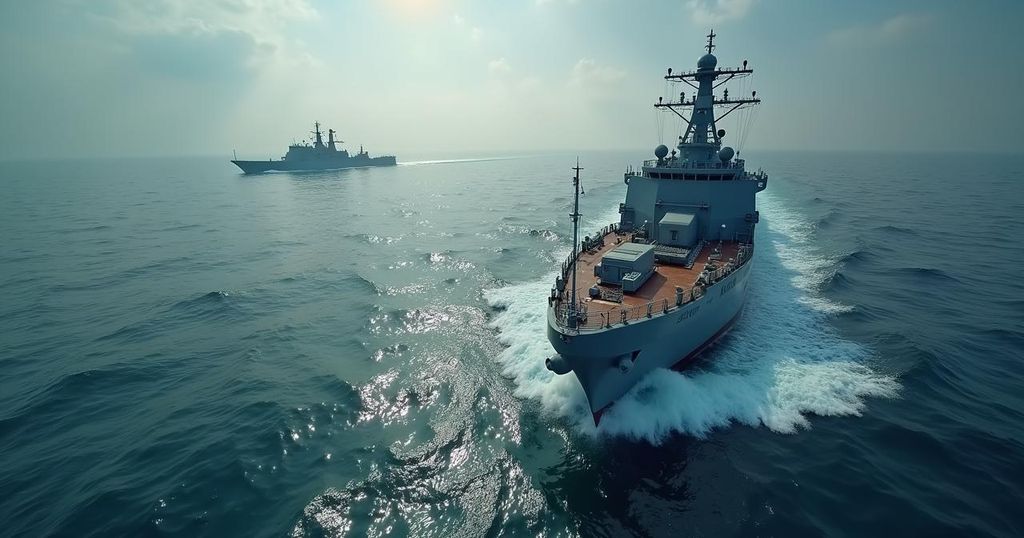Defense Secretary Questions China’s Intent in South China Sea Code of Conduct Talks
Defense Secretary Gilberto Teodoro Jr. has questioned China’s sincerity in the Code of Conduct negotiations for the South China Sea, expressing doubt about their claims of commitment to genuine dialogue. Despite China’s assurances to ASEAN, Teodoro emphasized the need for credible discussions and warned of the risks of deception. Tensions in the South China Sea remain high due to overlapping territorial claims, particularly following a favorable international ruling for the Philippines against China’s assertions.
On Monday, Defense Secretary Gilberto Teodoro Jr. articulated his skepticism regarding China’s genuine intent in the ongoing discussions about the Code of Conduct (COC) for the South China Sea (SCS). He noted that although China professes commitment to dialogue, their claims seem insincere. Teodoro stated, “Well, they are committed to dialogue but they are the only ones who believe in what they say, that’s the problem.” He further elaborated that if China were truly committed to dialogue, it should be credible rather than mere rhetoric. He expressed concerns regarding China’s emphasis on historical claims, questioning, “What kind of dialogue is that? It is just a monologue that only they believe.” Teodoro expressed the Philippines’ willingness to engage in dialogue provided it is not predicated on deception. Teodoro’s statements came in the wake of China’s recent affirmation of its commitment to advance discussions concerning the COC in response to comments made by President Ferdinand “Bongbong” Marcos Jr. at the ASEAN summit. During a Beijing press conference, Chinese Foreign Ministry spokesperson Mao Ning reiterated that China aims to effectively implement the Declaration on the Conduct of Parties in the South China Sea while fostering cooperation with ASEAN nations. However, President Marcos had emphasized the urgency for expedited negotiations on the COC, particularly regarding unresolved core issues. Amidst these dialogues, tensions persist in the SCS, as Beijing continues to assert extensive territorial claims that overlap with those of several Southeast Asian nations, including the Philippines. In 2016, an international arbitration ruling declared China’s claims to be baseless, yet China has consistently rejected this verdict.
The South China Sea is a critical maritime corridor where approximately $3 trillion in global trade transits annually. This area is subject to competing territorial claims, particularly from China and several Southeast Asian nations including the Philippines, Vietnam, Indonesia, Malaysia, and Brunei. The Philippines designates parts of the SCS as the West Philippine Sea. In 2016, an international tribunal ruled in favor of the Philippines concerning its territorial claims, rendering China’s assertions as lacking legal foundation. However, China has consistently rejected this ruling, further complicating diplomatic relations in the region. Discussions surrounding the implementation of a COC aim to establish guidelines governing behavior in the SCS to mitigate tensions, yet skepticism persists regarding China’s commitment to genuine dialogue, as highlighted by Philippine officials.
In summary, Defense Secretary Gilberto Teodoro Jr. has expressed profound doubts about China’s sincerity in the ongoing negotiations for the Code of Conduct in the South China Sea. His concerns reflect broader apprehensions about China’s territorial claims and commitments to a truly constructive dialogue. The discussions are critical as they aim to foster peace and cooperation in the region, despite the prevailing tensions stemming from historical disputes and China’s expansive claims.
Original Source: www.gmanetwork.com








Post Comment